Scientists gathering for Upstream Petroleum Symposium

KAUST and Saudi Aramco are hosting the Upstream Petroleum Symposium at the University's campus on November 13-14.
The symposium will highlight state-of-the-art and recent developments in understanding fluid flow and recovery in conventional and unconventional hydrocarbon systems, and will identify unique challenges and opportunities for fundamental and solution-driven collaborative research.
Academics from KAUST and a number of international universities will be joining Saudi Aramco's upstream petroleum experts to present on critical issues in this important field.
We interviewed some of these experts to learn more about their views on oil and gas, upstream petroleum and visiting the University prior to the symposium.
Dr. Lamia Goual, University of Wyoming (Wyoming, USA)
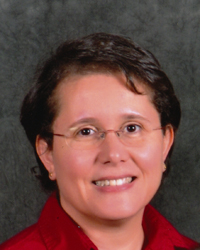 Dr. Lamia Goual
Dr. Lamia Goual
Primary field of research:
I work on interfacial science and thermodynamics as applied to flow assurance, enhanced oil recovery and remediation of contaminated aquifers. I am particularly interested in the effect of chemical additives on oil/brine/rock interactions.
Why is upstream petroleum research so important?
The world's energy demand is still heavily dependent on oil and gas production. As conventional reservoirs are being depleted and more unconventional resources are being exploited, upstream petroleum research is even more important today than it was in the past. I visualize two future directions for upstream research: 1.) Tapping into existing conventional reservoirs and residual oil zones to achieve substantially higher hydrocarbon recovery, and 2.) exploring new recovery and production strategies for unconventional reservoirs.
What are the key issues the oil and gas industry is facing today?
The fundamental mechanisms that govern fluid-fluid and fluid-rock interactions are still not well understood. This hampers effective production from large reservoirs. The economic viability of unconventional resource development may also soon be an issue.
What will you discuss at the symposium?
I will be discussing the aggregation and chemical dispersion of asphaltenes, the heaviest and most polarizable fraction of oil. The precipitation of this fraction is often responsible for the fouling of flow lines and formation damage in subsurface reservoirs. In our work, we use chemicals of known structure to prevent precipitation, and we model their interactions using high-performance computing. This work can have important implications to the oil industry.
Why are you interested in attending the event?
I accepted the invitation to attend the event because it is an international symposium and I am very interested in exploring opportunities for fundamental and solution-driven collaborative research.
Dr. Mustafa AlAli, Saudi Aramco (Dhahran, Saudi Arabia)
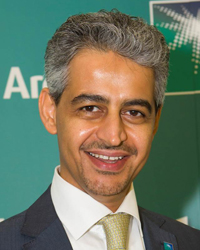 Dr. Mustafa AlAli
Dr. Mustafa AlAli
Primary field of research:
My expertise lies in the area of the discovery of hydrocarbons. I have diverse experience in geophysical, geological and petrophysical methods ranging from data acquisition and processing to interpretation for hydrocarbon fields prospecting.
Why is upstream petroleum research so important?
Its importance lies in the world's pursuit of sustainable energy for a growing global population at a reasonable cost. To sustain energy resources, we must add more reserves, and we must manage cost through efficient production techniques. All these are possibly only through novel technological innovations. There are still many challenges to address in this field.
What are the key issues the oil and gas industry is facing today?
Today's challenges are tomorrow's opportunities – they are the stimulus for investing in technology. Some of these challenges in the upstream area are: making deep-sea drilling safer and cheaper; producing tight reservoirs; enhancing recovery rates; and improving the ability to image reservoirs with high resolution. In the future, I believe the industry will look for more integrated and automated solutions for discovery decision making and for recovery optimization, eventually removing the boundaries between upstream disciplines.
What will you discuss at the symposium?
In my main presentation, I will discuss Saudi Aramco's upstream research and technology pursuits, with an emphasis on the company's global operations. I will also talk about my views on the next upstream technology trends; how to exploit horizontal drilling for better reservoir control; the spillover of unconventional resources technology into conventional resources; and the role of computation in shaping future upstream technology.
Why are you interested in attending the event?
I have been working for Saudi Aramco since 1987 and previously worked at KAUST. I have also been involved in setting up the symposium, which I believe is an excellent opportunity to bring together the KAUST research community, Saudi Aramco and visiting experts.
Dr. Dean Oliver, Uni Center for Integrated Petroleum Research (Bergen, Norway)
 Dr. Dean Oliver
Dr. Dean Oliver
Primary field of research:
My work experience has been as a research scientist, professor and reservoir engineer. My focus as a researcher has been on the application of inverse problem theory to reservoir engineering problems, and I have been particularly interested in quantifying the uncertainty in the answers.
Why is upstream petroleum research so important?
In many locations around the world, including in the North Sea, most of the so-called "easy oil" has been found, and many reservoirs are in the tail production phase. Unless new methods are developed, much of the original oil-in-place will be left behind at the time of abandonment.
What are the key issues the oil and gas industry is facing today?
I believe there is s till a great deal of room for improvement in the optimal use of date for improving models of the reservoir. Once these models have been developed, there will be a strong need for improved methods of reservoir optimization.
What will you discuss at the symposium?
I will discuss the topic of history matching and the estimation of uncertainty. I hope to leave people with the understanding that quantifying uncertainty and obtaining good history matches on a well level are not only technically feasible, but are critical to making optimal decisions and increasing the value of the reservoir.
Why are you interested in attending the event?
I visited KAUST in 2011 to speak at a symposium on the impact of applied and computational mathematics in the 21st century, and I worked with Saudi Aramco in the late 1980s and early 1990s. My time working with Saudi Aramco and my visit to KAUST were both very interesting experiences, and I am pleased to return to the Kingdom for the symposium.
Dr. Amos Nur, Stanford University (California, USA)
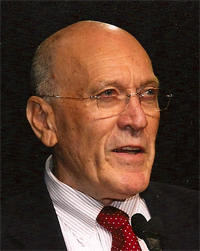 Dr. Amos Nur
Dr. Amos Nur
Primary field of research:
As a professor of geophysics, I focus on the study of the physics of rocks and the applications of the field to oil and gas exploration and production. I also study methane clathrates under the earth's oceans, and the physics of earthquakes as related to rock physics.
Why is upstream petroleum research so important?
Upstream research has become much more challenging because future discoveries of big petroleum accumulations are more difficult to make than in the past, and because the recovery of oil and gas remains problematic. We still leave behind most of the oil and gas we discover, although in principle we should be able to do much better.
What are the key issues the oil and gas industry is facing today?
The most important issue is the low recovery factor. I believe future generations will consider us reckless in many of our present-day techniques to manage our fields.
What will you discuss at the symposium?
I will explain why digital rock physics is emerging as a major area of development in exploration and production (E&P). It is emerging for two main reasons: 1.) Our understanding of the detailed physics and chemistry of reservoir rocks with fluids is painfully lacking, partially because of the paucity of rock property data, and 2.) although we have worked on this problem for decades, we are basically unable to use seismic information to really impact reservoir characterization and simulation.
Why are you interested in attending the event?
KAUST is unique because it is a major academic development in Saudi Arabia, and I already knew of and was impressed by such a world-class institution's development. In addition, some of my colleagues from Stanford were involved in establishing early computer science collaborations with KAUST. I have also visited Saudi Aramco many times to exchange ideas and give talks on rock physics.
Dr. Ding Zhu, Texas A&M (Texas, USA)
 Dr. Ding Zhu
Dr. Ding Zhu
Primary field of research:
I am a professor in petroleum engineering, and I focus on production performance and optimization, horizontal and multilateral wells, well stimulation and well completion.
Why is upstream petroleum research so important?
In today's world, the production of oil and gas faces increasing challenges in difficult conditions, such as in deep water. Without further research and developing technology, it will be difficult to meet these environmental and economic challenges.'
What are the key issues the oil and gas industry is facing today?
Two key issues are clean energy production and more efficiency.
What will you discuss at the symposium?
I will discuss intelligent technology for monitoring and optimization of oil and gas production.
Why are you interested in attending the event?
I knew of KAUST and had already worked with Saudi Aramco. I am excited to help create international collaborations between research units around the world, and work as teams to develop new technologies.
Dr. William Fleckenstein, Colorado School of Mines (Colorado, USA)
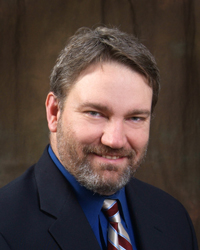 Dr. William Fleckenstein
Dr. William Fleckenstein
Primary field of research:
I have worked as a drilling and completions engineer, and my expertise is in field development, particularly in unconventional wells.
Why is upstream petroleum research so important?
Unconventional development is an immature series of technologies, with advances being made literally every day. The production increases in the US are well-documented, but unconventional resources are found worldwide.
What are the key issues the oil and gas industry is facing today?
Sustainable development from the oil and gas industry is now being demanded by the public. Inexpensive hydrocarbon fuel is a key to sustainable development for human civilization everywhere.
What will you discuss at the symposium?
I will discuss the risks and benefits of shale development in the US. I am currently working on a project with the US Science Research Network focused on the sustainability of natural gas development, a topic I feel is key to the acceptance of shale development techniques in the US, and ultimately worldwide.
Why are you interested in attending the event?
Saudi Arabia is a key component in the world energy equation, and KAUST is a preeminent institution in the region. I was honored to be invited to attend.
Dr. Hossein Kazemi, Colorado School of Mines (Colorado, USA)
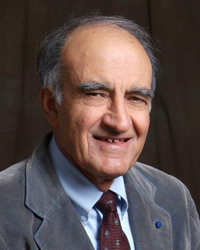 Dr. Hossein Kazemi
Dr. Hossein Kazemi
Primary field of research:
I have over 50 years of concurrent industrial and academic experience. My areas of expertise include: reservoir modeling, dual-porosity fractured reservoir production, enhanced oil recovery, and unconventional shale production.
Why is upstream petroleum research so important?
On average, we leave two-thirds of oil in the reservoir. Good reservoirs produce around 45-50% of the initial oil in place, but some reservoirs produce only 10-20% of the initial oil in place. Only two enhanced oil recovery (EOR) techniques are contributing to oil production; these are CO2 injection and steam injection. The world's EOR contribution is around 2.5% of the total daily oil production. Much of the EOR production is in the US and Canada and in other countries that have heavy oils. We can increase EOR oil production, but we need to look at new ways to do this. EOR is manpower-, technology-, and cost-intensive!
What are the key issues the oil and gas industry is facing today?
Some key issues are: 1.) Protection of the environment by reducing well emissions and emissions from the transportation of hydrocarbons to the marketplace; 2.) lack of credible dialogue about EOR methods; 3.) lack of support for EOR research programs; and 4.) technology transfer from shale reservoirs to conventional reservoirs.
What will you discuss at the symposium?
I will focus on pore scale physics of transport in petroleum reservoirs. I will emphasize the practical aspects of what I have learned in the last ten years from unconventional reservoirs and how they can help improve production in conventional reservoirs.
Why are you interested in attending the event?
I had already heard of KAUST and its excellent reputation, and I have worked with Saudi Aramco and visited the Aramco headquarters in Dhahran before. I hope my visit to KAUST promotes collaboration – I believe KAUST can partner with other institutions to advance outstanding ideas for the good of mankind.
Dr. Peter King, Imperial College London (London, UK)
 Dr. Peter King
Dr. Peter King
Primary field of research:
I studied theoretical physics, receiving my Ph.D. in 1982. I have expertise in statistical and mathematical physics. In oilfield applications, this relates to modeling of oil reservoirs, upscaling, uncertainty estimation, decision making in the presence of uncertainty, and pore scale modeling.
Why is upstream petroleum research so important?
Whether we like it or not, we are dependent on hydrocarbons for energy, fuel, chemicals, pharmaceuticals, and other products. But hydrocarbons are a finite resource, and we are no longer making discoveries of major new fields. This means we have to develop smaller, more complex fields, sometimes in more difficult operating environments (such as in very deep water). It is important that we carry out these developments effectively. In addition, the global average recovery factor is around 30-35%, so when fields are abandoned there is still around two-thirds of the original oil in place left behind. This is a huge potential resource of global importance. Our conventional modeling techniques and understanding of the flow physics are inadequate to recover this resource, so research is required to increase recovery by a significant amount.
What are the key issues the oil and gas industry is facing today?
The main challenge is improving recovery, but this must be done at low cost. There is also uncertainty in our ability to predict future production, so we must plan with this uncertainty in mind to mitigate against the risks. The industry also needs to improve its environmental record.
What will you discuss at the symposium?
I will discuss areas where techniques developed from mathematical physics can be successfully applied to reservoir modeling problems. I think this is important because we need to change the way we try to model reservoirs and future performance from them. There are many useful methods that have been developed for the study of other systems that can help and have already been applied.
Why are you interested in attending the event?
I feel the symposium will be a good opportunity to share ideas with many of the world's leading scientists working in the important upstream area, and I think it will help mold future research directions. I also hope my talk will enable us to know that we can apply much from other disciplines to this field, but there is still a great deal of work required to adapt these methods to the particular challenges in the oil industry.
By Caitlin Clark, KAUST News

